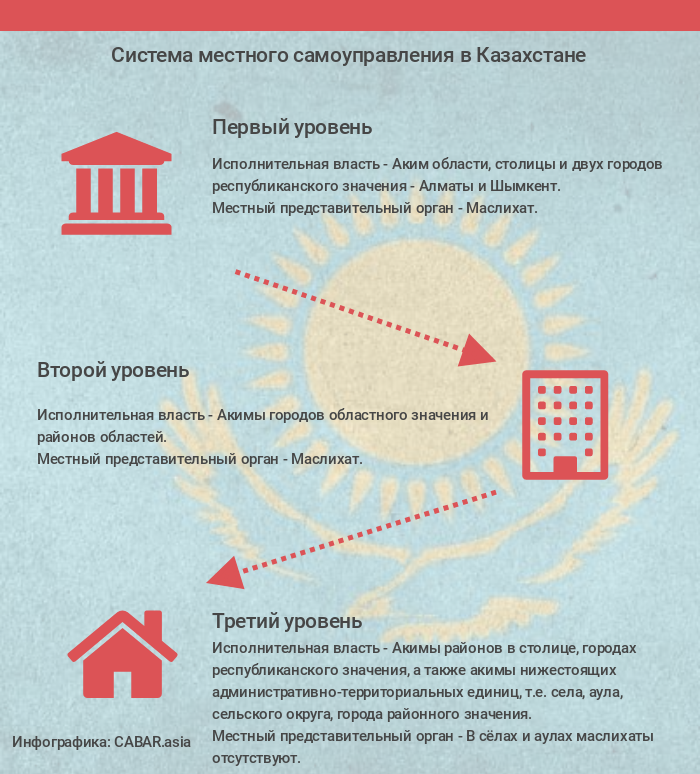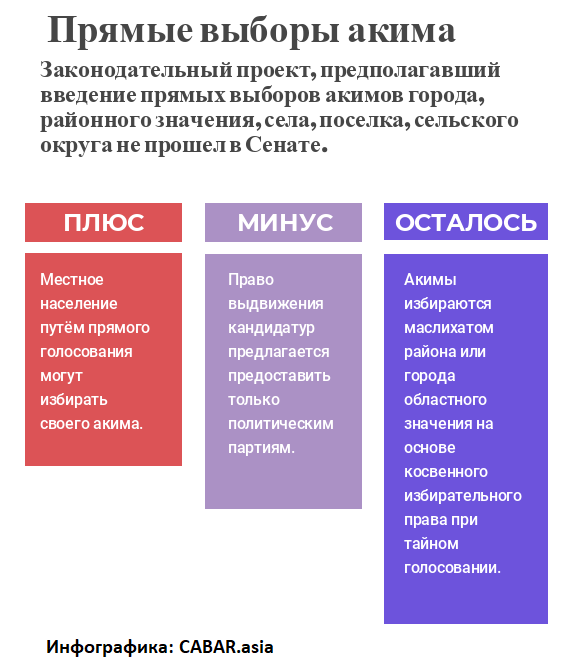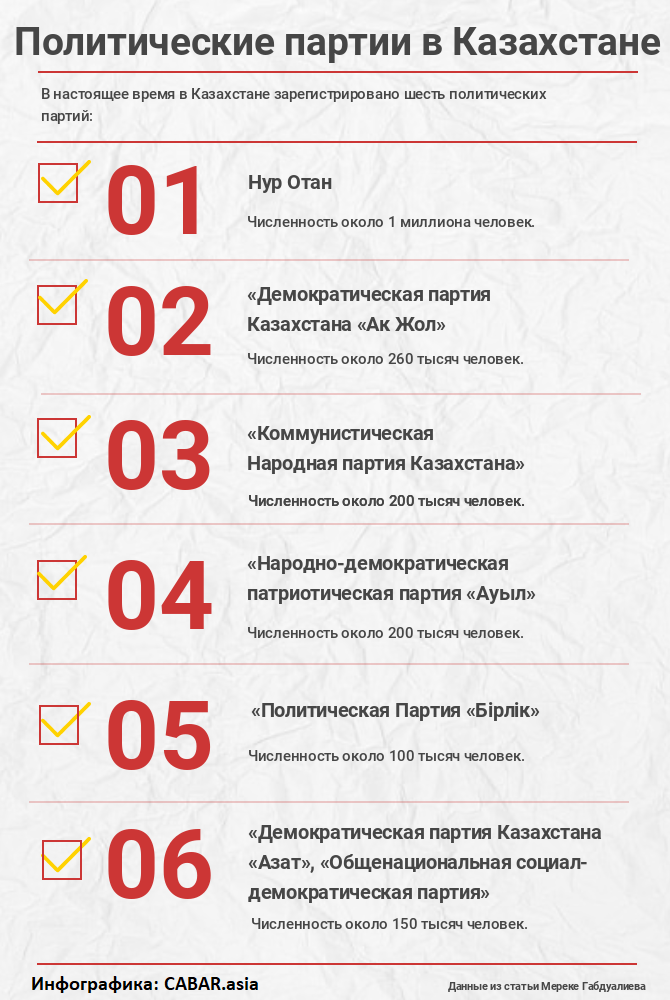«The Strategy revision is explained rather by the adoption of 2016 EU Global Strategy and, consequently, the need to adapt all foreign policy activities to the new realities. The EU seeks to strengthen its positions in the international relations system and therefore updates the mechanisms of interaction with the outside world», – notes Yuriy Sarukhanyan, the specialist in international relations and participant of cabar.asia Analytics School, in a special article for cabar.asia.
«There has already been established an opinion in the society that the hopes placed on the “Bolashak” program had not been fulfilled. In turn, graduates of the program complain about the absence of special conditions. There is some truth in the position of each partie», – notes a philologist from Kazakhstan Aynash Mustoyapova in her article for cabar.asia.
On February 27, 2019, the IWPR Representative Office in Central Asia, analytical platform cabar.asia and Center for Chinese Studies “China Center” in Almaty organized a round table on the topic “Sinology in Kazakhstan: the current state and prospects”.
«To achieve the goals set by the authorities of Kazakhstan, religious studies in schools should not become an ordinary school subject for the sole purpose of acquiring new knowledge, but should lead to an increase in tolerance among the youth and unity through diversity», – notes an independent researcher Meruert Seidumanova in her article written specifically for analytical platform cabar.asia.
“The activities of the police in Kazakhstan are mainly focused on protecting the regime and, to a lesser extent, on meeting the needs of the population for the protection of public order. The authorities began to demonstrate some readiness for limited reform only with the growth of social discontent. This is the main difference and hope that the reform agenda has a chance to form a movement in the right direction”, – political analyst Dimash Alzhanov notes in his article written specifically for the analytical platform cabar.asia.
“Kazakh sinology lives rather in spite of than thanks to the state policy. It looks more successful compared to other republics of the region due to extensive contacts with China and a large size of economy. However, if we compare it with the Russian indicators, then it is obviously impossible to call several separated sinologists as a school”, – notes a political scientist and China expert Adil Kaukenov in his article, written specifically for the analytical platform cabar.asia.
“Progress in the development of the “Belt and Road Initiative” will depend on how far China can take action to solve the emerging problems. Central Asian states also need to develop standards for cooperation with the PRC and, apart from economic indicators, pay more attention to environmental and social issues”, – Kairat Moldashev, researcher, states in his article written specifically for the analytical platform cabar.asia.
December – time to sum up the year’s results. By the end of 2018, in addition to journalistic materials, several dozens of analytical articles were published on the cabar.asia portal. We hope that they have revealed actual issues and questions of the Central Asian region, gave a look at some things from other angles, broadened the horizons, and simply helped to spend time with benefit. If you missed something worthwhile, we present you a review of the eight best analytical articles of 2018.
“On the one hand, Kazakhstan understands the sensitive attitude of the Chinese authorities to the Xinjiang issue. On the other hand, the Kazak diaspora is one of priority directions of the foreign policy of Kazakhstan, as well as the citizens abroad are under protection of their homeland,” political analyst Berikbol Dukeyev wrote in his article specifically for cabar.asia.
“The constitutional law adopted in Kazakhstan has made the elections to maslikhats controllable by local executive bodies. A transition to the proportionate model of election of maslikhat deputies bears political risks for regional development and in future can lead to a constitutional default,” – Mereke Gabdualiev, constitutional lawyer, wrote in his article specifically for analytical website of cabar.asia.
Follow us on LinkedIn!
Brief review of the article:
- Kazakhstan has an absolutely centralised model of a unitary state, where any appointment or election of an akim is controlled by the capital city to the maximum;
- The suggested limit of election of rural akims was not “adopted”;
- A transition to party-based maslikhats contravenes the constitution;
- The procedure of election of maslikhat deputies will totally depend on akims;
- In Kazakhstan, political parties are the appendages of the state apparatus.
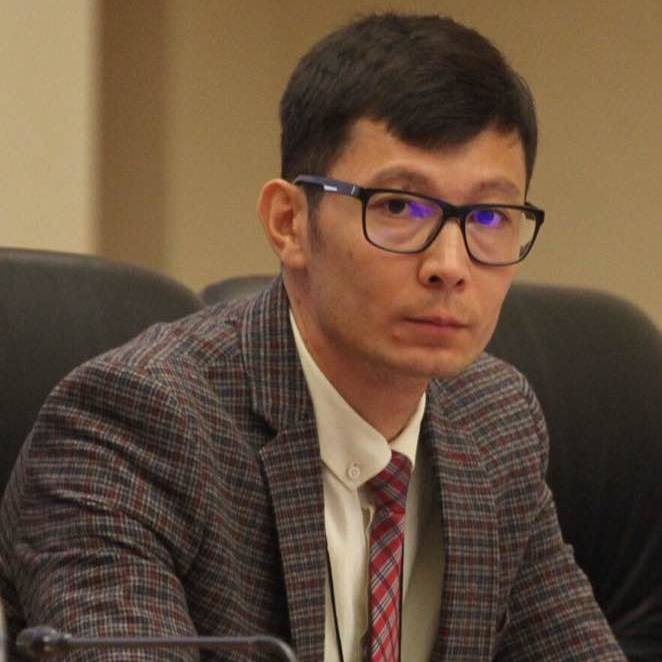
On June 29, 2018, the lower house of parliament of Kazakhstan adopted the constitutional law, which amended the valid constitutional law “On elections”. This law sets forth the proportional model of election of deputies to local executive bodies – maslikhats.
Before the law was adopted in Kazakhstan, deputies of Majilis – the lower house of parliament, were elected through a party system. The deputies of maslikhats were elected through the majoritarian voting system. It means that previously both self-nominated candidates and representatives of various public organisations and political parties could be elected to maslikhats.
Strengthened centralised authority
In Kazakhstan, local administration consists of local state administration and self-government, as required by the constitution. Local state administration is exercised by local representative bodies – maslikhats and local executive bodies – akimats, led by akims.
Akims of oblasts, cities of special national importance and capital city are appointed by the president of the republic with consent of the maslikhats of respective oblasts, cities of special national importance and the capital city. Akims of other administrative divisions are appointed, elected or removed from office according to the laws. The president may, in his discretion, remove akims from office. Kazakhstan has an absolutely centralised model of a unitary state, when appointment or election of any akim is controlled by the presidential administration to the maximum degree (e.g., appointment of an akim at the oblast level) or by the superior akim (at the level of subordinate administrative divisions).
It should be emphasised that the deputies of existing local representative bodies (maslikhats) were elected by popular vote. By-elections of deputies of maslikhats were carried out October 28, 2018 to replace deputies elected under the previous popular vote system. The new election model will be used during the next elections, when the term of office of the current deputies of maslikhats expires.
Thus, every time local authorities lose their reputation in the society because akims fear to allow independent candidates to elections. It is beneficial for oblast akims to show “stability” and “loyalty” in the entrusted region to the inspectors from Ak Orda. Their plans do not contain the presence of at least one independent deputy in maslikhats. Such a deputy would be asking “unnecessary” questions, attract media attention, etc.
Nevertheless, the current system of elections of maslikhat deputies sometimes “failed”, and in some regions one or two independent candidates could be elected to the local representative body.
No direct elections of rural akims
In Kazakhstan, the discussion of the law on election of rural akims was criticised by the expert community. Initially, two packages of draft laws provided for the transition to the proportional model of election of maslikhat deputies and rural akims.
Currently, in Kazakhstan akims of rural districts, villages and cities (except Astana and Almaty) are elected by people, but not in direct voting, but through the deputies of district maslikhats. Initiators of the draft law have tried to switch to the direct model of election of rural akims based on their strong linkage to political parties. However, this concept failed because material violations of the law-making procedure were committed during development of the draft law.
The constitutional draft law suggested entitling political parties to nominate candidates to rural akims. Putting aside all political aspects of this issue, we will see that this draft law was incomplete as a matter of law and contradicted the state programme.
The state programme “Concepts of development of local governments in the Republic of Kazakhstan” sets forth that “akim of a district (city) on the alternative basis shall nominate candidates for akims of villages, rural district, city of district subordinance to respective maslikhats.
The Kazakhstan’s Development Fund for Parliamentarism submitted expert opinions to the Parliament Senate. The upper house of parliament didn’t approve the draft law in this part. However, the initiative on maintaining the indirect election model for rural akims was justified by the Senate by “the reasonability of preserving the existing election procedure”.
Contradiction to the constitution
The parliament has adopted the constitutional law providing for the transition to the proportional model of election of maslikhate deputies, which contradicts the Constitution of the Republic of Kazakhstan.
Thus, item 3 of article 86 of the Kazak Constitution expressly provides that “a citizen of the Republic of Kazakhstan who has reached the age of twenty shall be eligible for a term in the maslikhat. A citizen of the republic can be a deputy of only one maslikhat.”
The constitution does not specify whether a candidate should belong to a political party or be nominated by that party.
For example, as for the elections of MPs, item 5 of article 51 of the constitution expressly states that “elections of the members of Parliament of the Republic of Kazakhstan shall be governed by the constitutional law”. It allowed switching to the proportional election system during mazhilis member elections in 2007.
Even article 41 of the constitution was amended in 2017 in part of requirements to presidential candidates.
“A citizen of the Republic shall be eligible for the office of the President of the Republic of Kazakhstan if he is by birth not younger than forty and has a perfect command of the state language and has lived in Kazakhstan last fifteen years, has higher education. The constitutional law may specify additional requirements to the presidential candidates in the Republic of Kazakhstan” (item 2, article 41, Constitution of Kazakhstan).
If a legislator believes that item 6, article 86 of the constitution gives them a right to specify additional requirements to the candidates for maslikhat deputies, he is wrong. Item 6, article 86 of the Kazak constitution specifies that “the jurisdiction of maslikhats, procedure of their organisation and activity, and legal status of their deputies shall be established by law”.
Item 6, article 86 of the constitution of Kazakhstan specifies nothing about possible additional requirements to the candidates to maslikhat and gives no reference to the constitutional law.
The constitutional board may decide whether the draft law complies with the constitution, yet no entities who are entitled to apply to the constitutional board have applied.
Akim-dependent elections
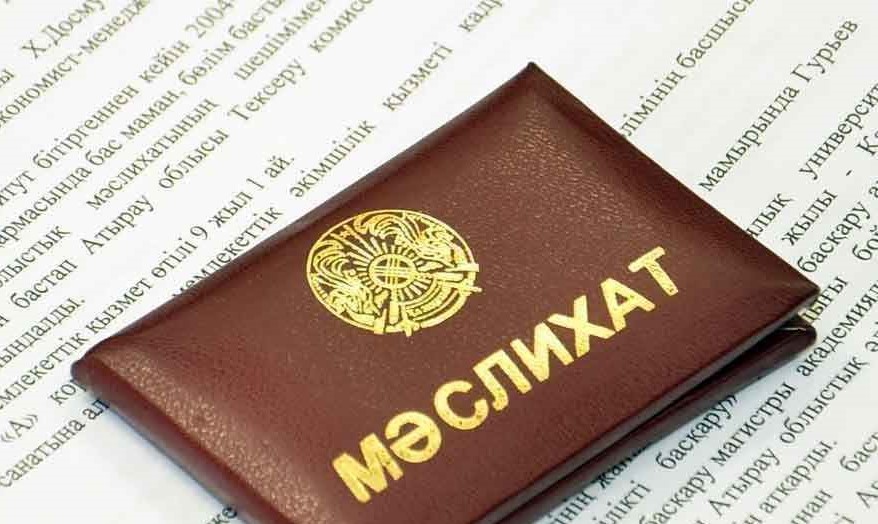
Law drafters have tried to justify the transition to the “party list”-based maslikhats by existing “positive, best practices of developed countries”. However, in foreign countries the proportional election system during elections to local representative bodies has peculiarities. For example, in France regional boards are formed under the proportional system, and communes can use either majoritarian or combined election system.
Denmark has a proportional distribution of seats in municipal assemblies. In the Netherlands, municipal boards are elected by residents of respective locations on the basis of proportional representation.
All these countries are the states with high level of party democracy and political culture. As you can remember, a few years ago the citizens of France opposed the nomination of the son of ex-president Sarkozy in the same location where his father was once elected. The French people did not allow Sarkozy Jr. to use the political capital of his father because they believed it was unfair towards other candidates for the mayor’s office. Here, in Kazakhstan, after all we will get a temporary akim.
The constitutional law adopted in Kazakhstan has made the elections to maslikhats controllable by local executive bodies. These amendments will “ease” the work of akims and local home policy offices, but will definitely move the country away from democracy.
Implementation of the eligibility to vote has been made dependent on the political orientation of a citizen (if a person does not belong to any political party, he is not eligible to be elected to an elective office).
Political parties as a state apparatus
The transition to the party system in the elections of maslikhat deputies amid underdeveloped party democracy will not contribute to the efficient local management. Today, implementation of the constitutional principle of ideological and political diversity, multiplicity of parties is one of the relevant issues in the constitutional and legal development of Kazakhstan.
Kazakhstan has political parties, which were mainly organised not from the bottom up but vice versa at the initiative and under control of the state, specifically for certain persons and were meant to demonstrate “political diversity” in the country to western investors rather than the expression of public opinion.
Currently Kazakhstan has six registered political parties: Nur Otan (nearly 1 million members), Democratic party of Kazakhstan Ak Zhol (nearly 260 thousand members), Communist People’s Party of Kazakhstan (nearly 200 thousand members), People’s Democratic Patriotic Party Auyl (nearly 200 thousand members), Political Party Birlik (nearly 100 thousand members), Democratic Party of Kazakhstan Azat, All-national Socio-Democratic Party (nearly 150 thousand members). However, the number of members of these parties is purely conditional. In fact, no one has verified this data submitted by parties. Moreover, membership in pro-government parties is rather a mandatory condition for their quiet functioning than a real desire to improve the lives of citizens through the party institute.
Today political parties imitate participation in parliamentary and legislative procedures at the central republican level. In other words, villagers don’t care about the colour of a bridge (blue or red), which party would build a water pipeline in the village, what kind of siren an ambulance car would use etc. at a local level. It’s important that local issues not be politicised, but solved depending on their real political and legal nature.
In reality, elections to local representative bodies should be designed to have elected deputies solve local issues. Such functions of local governments as cleaning of streets and garbage, planting of trees, lighting, water supply etc. should not be politically motivated or belong to Nur Otan followers, communists, Ak Zhol supporters etc.
Outcomes:
- The creation of a centralised party model of elections of maslikhat deputies at local levels and of mazhilismens at the republican level is an attempt to prepare a flawless and absolutely controllable process of political transition in Kazakhstan. All the reforms regarding the switching to the proportional election system for maslikhat deputies should be considered according to the adopted law “On the security council” and reforms regarding the political division of the country;
- Local political elites can influence the planned political process of transition of power in the centre. This was a reason of liquidation of South Kazakhstan oblast by dividing it into a city of national importance, Shymkent, and Turkestan oblast. This reform has contributed to the division of the Big South by dividing the spheres of influence;
- A desire to play safe during two or three years of the so-called “transition period” can be seen in the draft law. However, it’s a knowingly wrong decision. They are making it all wrong. Political opposition is an essential component of the political party system;
- In fact, the word “opposition” doesn’t have negative connotation, just as “oppositionists” do not mean the enemies of the people. Many countries of the former Soviet Union represent opposition parties as enemies of public welfare. They initiate criminal cases, impose tax sanctions against the leaders of such parties, the state apparatus is being involved to suppress any unplanned dissidence. However, opposition citizens with an active and independent position often play an important role in ensuring the national security. Such citizens do a favour to the country through constructive dialogue, criticism, civil control of budget and authorities. These people help to prevent corruption, reduce abusive exercise of power by officials, monitor budget expenditures etc.;
- When the real opposition is driven beyond the constitutional field, the protesting part of people switch to dissident, illegal ways of expressing their opinions. A transition to the proportional model of elections of maslikhat deputies contains political risks for regional development and they can potentially lead to the constitutional default in future. “On-duty” deputies of maslikhats would not be able to prevent civil disturbances in such force majeure situations as previous years’ land protests.
This article was prepared as part of the Giving Voice, Driving Change – from the Borderland to the Steppes Project implemented with the financial support of the Foreign Ministry of Norway. The opinion expressed in the article does not reflect the position of the editorial board or the donor.

